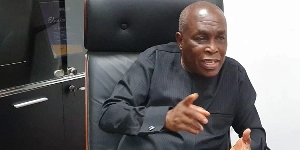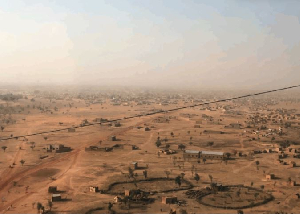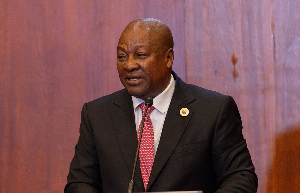The World Food Program, Leo MUN has appointed USAG health officer, Kofi George Merkel Abuah as a member of the 2020 conference on the “food crisis in South Sudan”.
He was among the top applicants from almost 400 applicants of over 20 countries in and out of Africa.
The World Food Program is the food assistance branch of the United Nations and the world’s largest humanitarian organization, addressing hunger and promoting food security.
According to the WFP, it provides food assistance to an average of 91.4 million people in 83 countries each year.
The first virtual conference was held on zoom on 17th and 18th respectively. The conference seeks to provide food assistance to control the food crisis in South Sudan.
Over the last ten years, an average of 9 million people die from hunger, the United Nations through the World Food Program seeks to end hunger and famine problems, achieve food security and improve nutrition by 2030.
According to WFP, one out of nine persons still do not have enough food to eat. In Africa, hunger also poses a major challenge to most countries, this is as a result of increases in drought and extreme weather conditions. As a result, 20% of Africa’s population is threatened by hunger.
The situation is no different in Ghana where about 5% of the population is said to be food insecure according to WFP 2009, these figures are expected to increase due to the emergence of the COVID-19 pandemic which has distorted the food production.
The situation is likely to worsen if realistic measures are not put in place to mitigate this effect in these difficult times.
The loss of agricultural land to gold mining companies is one factor that can escalate food insecurity in the country. Land owners in recent times have failed to lend their lands to farmers to farm on them, rather, they prefer to sell it out to mining companies to mine gold on them.
A research conducted on the Tarkwa Nsuaem Municipality in the Western region showed that the agricultural activities are decreasing while mining activities continue to increase. The situation compels farmers who used to own larger farmlands to cultivate smaller lands which affect the production of food crops on large scales.
Transport costs play an important role in agricultural development. High transport costs that result from inadequate transport infrastructure are to an extent responsible for the large inconsistency that frequently exist between the various class of people in the country.
Food will likely not get to where it is needed most. When this happens, the rich are prioritized, leaving the poor. The disruption in transportation will simultaneously cause massive post-harvest losses, especially, perishable foodstuffs such as vegetables, fruits and tubers produced are hard to reach communities.
The World Health Organization has noted that more than 20 countries have serious problems of malnutrition and stunted growth as a result of the food crisis that has set back anti-poverty efforts over the years.
One condition that is prone to individuals who are food insecure is Hypoglycemia. It is a condition in which the blood sugar level is lower than normal. Hypoglycemia usually occurs when one has not eaten, but is not always the case.
Sometimes hypoglycemia symptoms occur after consuming certain meals high in sugar because the body produces more insulin than you need. Untreated hypoglycemia can lead to seizure, loss of consciousness and worst cases death.
This year, the focus of the WFP is South Sudan where about 6.5 million people, which is 55% of the country’s population, are likely to face severe food insecurity according to Integrated Food Security Phase Classification (IPC).
The South Sudan War has left the State in crisis and despair. After five years of war, South Sudan’s President, Salva Kiir signed a peace deal with main rebel leader Riek Machar in August.
The agreement is fragile but represents a glimpse of hope. Still, 4.4 million people don’t know where their next meal is coming from. They badly need assistance and support. Without it, they could face worsening hunger.
Health News of Monday, 27 July 2020
Source: universnewsroom.com
USAG health officer appointed as member of World Food Program, Leo MUN 2020
Entertainment












